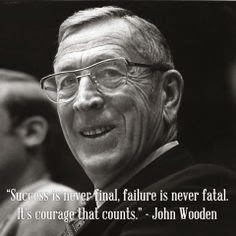When I worked on a sports copy desk in Little Rock, I became friends with the sportswriter who covered horse racing for us.
I learned a lot from him. I remember most of the things he told me, and I will never forget what may have been the most important thing he told me: There is no such thing as a sure thing. That's why they call it gambling.
In a week and a half, California Chrome will become the 12th horse to enter the Belmont Stakes with a chance to win the Triple Crown since Affirmed became the most recent Triple Crown winner in 1978. (Well, I presume he will run in the Belmont. He might not have if he hadn't been permitted to wear the nasal strip that helped him breathe easier in the first two races — and he still might not compete. I guess we won't know for sure until the Belmont is run on June 7.)
Obviously, we've been here before — and, just as obviously, success in the Kentucky Derby and the Preakness does not mean success in the Belmont Stakes.
It's a point every Triple Crown winner must reach en route to achieving the goal, of course, and 11 horses have won all three races for 3–year–old thoroughbreds that comprise it.
That's 11 Triple Crown winners in 95 years — since Sir Barton won the first Triple Crown back in 1919. But we's have had that many horses win the Kentucky Derby and the Preakness and fail to win the Belmont since Affirmed's Triple Crown in 1978 — starting with Spectacular Bid in 1979.
There had never been three consecutive Triple Crown winners when Spectacular Bid ran in the Belmont, but, if Spectacular Bid had won that race, it would have made three straight Triple Crown winners.
On the morning of the 1979 Belmont, it was discovered that Spectacular Bid had stepped on a safety pin, and it was lodged in his hoof. He didn't appear to be lame, though, so he was allowed to run the race, and he appeared to be doing well, holding the lead at the midway point. However, he began to falter and finished third.
Since then, 10 other horses have won the Kentucky Derby and the Preakness but failed to win the Belmont — and it might have been 11, but we'll never know. I'll Have Another won the first two races in 2012 but did not run in the Belmont.
Winning the first two races and losing the third wasn't a new thing in 1979. In the years before Spectacular Bid's Triple Crown attempt, eight other horses won the first two races but came up short in the third and last one. But it has been happening with greater frequency in the last 35 years.
Why is that? Well, I could be wrong, but I think it is because of the age of specialization that permeates sports these days.
Take baseball, for example. When I was growing up, it wasn't uncommon for a pitcher to throw a complete game. In fact, it was routinely expected that starting pitchers would go the distance — and relievers were called upon only when things got out of hand.
Now, baseball teams carry staffs of relief specialists who are called on (ideally) when the starter has gone six or seven innings, long enough to receive credit for the win, starting with the middle reliever and (again, ideally) proceeding to the closer.
I don't breed horses, but I gather — from my own observations and comments from those whose evaluations on such things I trust — that horses are bred for either speed or endurance, not both. To a degree, I suppose it has always been that way; I have always heard certain horses referred to as speed horses and other horses referred to as endurance horses.
I've heard some people suggest that, based on the times of the first two races, California Chrome is an endurance horse. I'm not sure about that. These assessments are made on the basis of times that differ by fifths of seconds. Sports are often described as being games of inches, though, so judging distances by fifths of seconds may not be all that different. I'm just not entirely sure it is the way to differentiate between a speed horse and an endurance horse.
Essentially, I suppose, a horse that can win all three races of the Triple Crown is both.
They call the Belmont the "test of the champion," and it really is. It is the longest of the three races by at least a quarter of a mile, thus emphasizing endurance over speed. If a horse can win the Triple Crown, he really has proven himself as an all–around champion.
In an interesting piece in The Atlantic last week, Henry Fetter wrote that even a Triple Crown winner won't be enough to save horse racing.
"[H]oping that a Triple Crown for California Chrome can jump–start a turnaround in the fortunes of the erstwhile sport of kings is almost certainly a hope too far," Fetter wrote.
I hope he's wrong.











